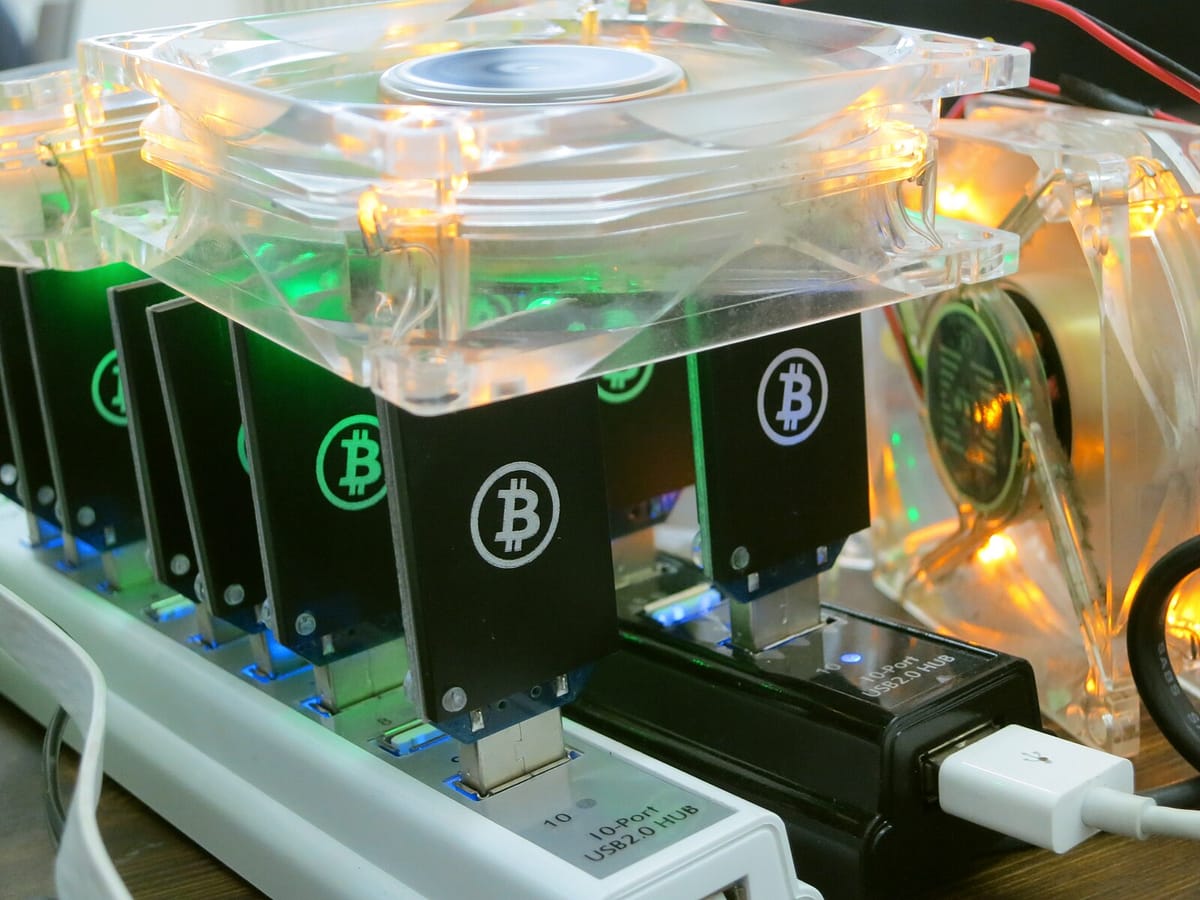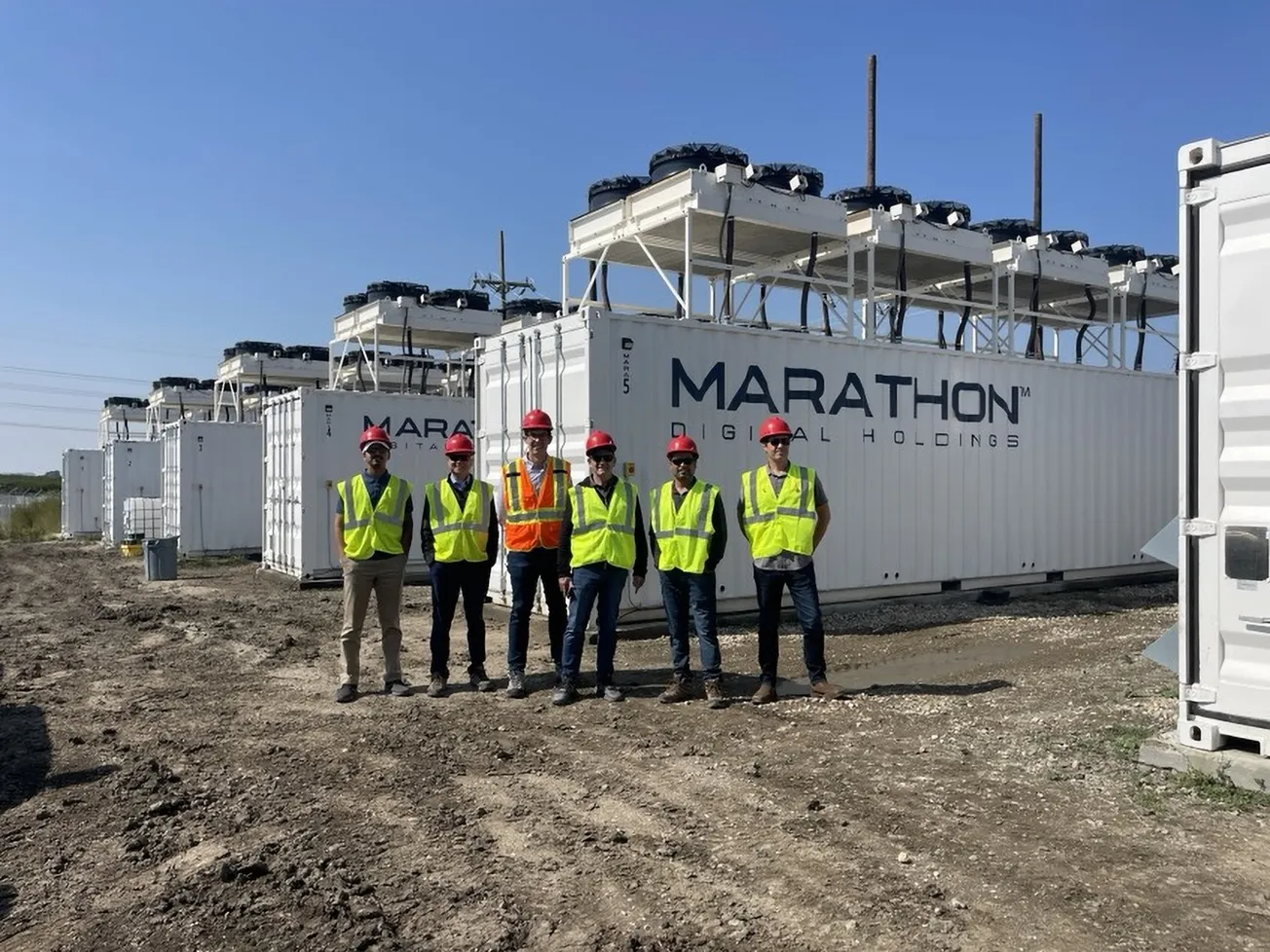Table of Contents
Marathon Digital Holdings, one of the prominent players in the Bitcoin mining industry, is set to significantly expand its mining operations through a substantial investment of $179 million.
A company announcement on Tuesday said it plans acquire two currently operational Bitcoin mining sites, totaling 390 megawatts of capacity, from subsidiaries of Generate Capital. This brings its Bitcoin mining portfolio to approximately 910 megawatts of capacity, 45% of which will reside on sites directly owned by the Company, and 55% of which will be hosted by third parties.
Growing Operational Capacity
Marathon noted that this transaction marks its first fully owned sites and its official transition from an asset-light organization to one that manages a diversified and resilient portfolio of Bitcoin mining operations.
The expansion opportunities at these sites substantially increase Marathon’s Bitcoin mining pipeline and provide the company with the potential to double its current operational hash rate to approximately 50 exahashes of total operating capacity over the next 18-24 months, the company said in the announcement.
“For the past year, Marathon has been vertically integrating as we transition into a more sophisticated and mature organization with a diversified portfolio of Bitcoin mining technologies and assets, and the acquisition of these sites is the next step in that evolution,” said Fred Thiel, Marathon’s chairman and CEO.
“By acquiring the sites in Granbury, Texas and Kearney, Nebraska from Generate, we have an opportunity to reduce our bitcoin production costs at these sites, to capitalize on energy hedging opportunities, and to expand our operational capacity," Thiel added.
Bitcoin Mining: A Profitable Venture
The Bitcoin mining sector has long been a focal point of interest for both crypto enthusiasts and investors. Mining involves the process of validating transactions on the Bitcoin network and adding them to the blockchain. Miners, in return, are rewarded with newly minted bitcoins and transaction fees.
Despite its complexities and the substantial resources required, Bitcoin mining can be a profitable endeavor. The profitability of Bitcoin mining is closely tied to several factors, including the current price of Bitcoin, mining difficulty, energy costs, and the mining hardware's efficiency.
The price of Bitcoin has historically been a primary driver of mining profitability. As the price of Bitcoin rises, mining becomes more profitable, encouraging miners to allocate more resources to the network. Conversely, when Bitcoin experiences price corrections, miners may face reduced profitability or even operational losses.

The Bitcoin Halving Effect
One critical aspect influencing Bitcoin mining profitability is the periodic event known as the "Bitcoin halving." This event, which occurs approximately every four years, reduces the number of new bitcoins issued to miners by half. The most recent Bitcoin halving took place in May 2020, reducing the block reward from 12.5 to 6.25 bitcoins. The next halving event is scheduled for April-May 2024.
The Bitcoin halving event has a profound impact on mining economics. It effectively reduces the rate at which new bitcoins are created, leading to increased scarcity. This scarcity can drive up the price of Bitcoin, potentially benefiting miners who continue to operate despite the reduced block rewards.
Stock Price Continues Climb
News of Marathon's acquisitions sent its stock (NASDAQ: MARA) soaring 10.51% to $21.97 in the last trading session. Like other crypto-related stocks, MARA has been on a tear as of late, and is up 106.48% in the past month.









